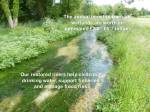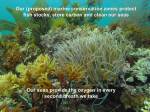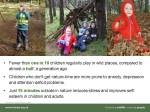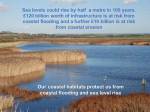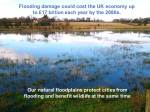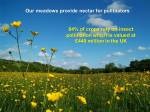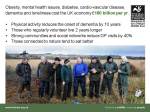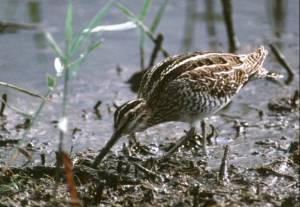At a time when nature is under greater threat than ever, our need for it has never been more important.
As an ecologist, I’ve been immersed in the nature conservation world for more than 20 years. For me, the importance of nature is paramount and obvious, but it is easy to forget just how unimportant and irrelevant nature is (apparently) to most people compared to issues such as the economy.
However, things are changing. Last year’s floods, the obesity crisis, increasing awareness of mental health issues, concerns about food security and animal welfare, and the impact of climate change are now mainstream issues – and every one of these has an important link with the nature conservation agenda.
The economic and social costs of climate change, environmental pollution and biodiversity loss will be (and are already) significant. Climate change could cost the equivalent of losing 5% of GDP each year, now and forever. But natural habitats can play a major role in mitigation.
Obesity, mental health issues, diabetes, cardio-vascular disease, dementia and loneliness cost the UK economy £180 billion per year. But contact with nature can have far-reaching benefits, helping to significantly reduce those costs.
Our wealth as a nation and our individual wellbeing depend critically upon the natural environment. Nature provides us with the essential ecosystem services, goods and products needed for life – like drinking water, clean air and food.
OUR PROPOSITION
- Nature is the solution to many of society’s problems
- Nature and ecosystems provide multiple benefits to our economy, health and wellbeing
- Nature mitigates the impacts of climate change
- Our lives are so much better with wildlife in them
But we need to invest in its recovery.
A shocking 97% of our wildflower meadows are gone; 77% of our precious chalk streams are in poor condition and 60% of all species are still declining. Nature cannot support us if we continue to use and abuse it.
There are those who argue that we cannot and should not put a price on nature. I do share those concerns and for me, the intrinsic value of wildlife is enough. It is truly priceless. There are risks with trying to value nature especially using our flawed economic system which we all know is at the heart of many of our issues today.
However, I have found that using some hard facts and figures – such as those in the slides below – can be a very powerful way of showing some audiences how important nature is and how important it is for us to invest in it…
- Benefits of woodlands
- Benefits of rivers and wetlands
- Benefits of marine habitats
- Children and nature
- Benefits of coastal habitats
- Benefits of floodplain habitats
- Benefits of meadows
- Benefits of access to nature
- Health benefits from nature
*****
The Wildlife Trusts and the RSPB are calling for a Nature and Wellbeing Act (read more here) which would put a duty on government to invest in nature’s recovery for its own sake and for the sake of our wellbeing. You can support this idea here – and follow the conversation on twitter using #actfornature
*****


